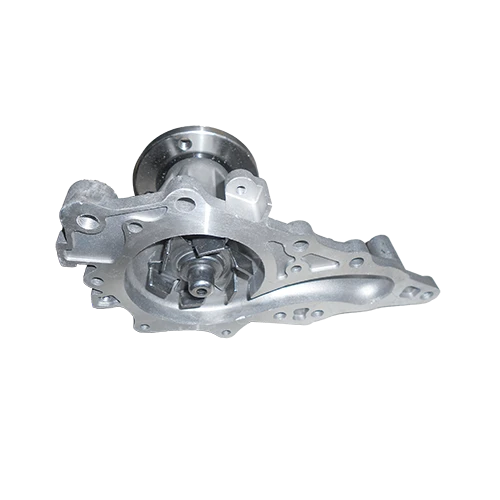Mobile:+86-311-808-126-83
Email:info@ydcastings.com
English
impeller vacuum pump
Understanding Impeller Vacuum Pumps Design, Function, and Applications
Impeller vacuum pumps are an integral component of various industrial and scientific applications, serving as versatile and efficient tools for creating and maintaining vacuum environments. These pumps operate based on the principles of rotary motion and fluid dynamics, providing reliable vacuum levels for processes such as material handling, evaporation, distillation, and more. In this article, we will explore the design, functionality, and typical applications of impeller vacuum pumps.
Design and Functionality
At the heart of an impeller vacuum pump is its impeller, a rotating component that plays a crucial role in the generation of vacuum. The impeller is typically made of durable materials such as aluminum or stainless steel, designed to withstand high speeds and corrosive environments. The impeller is mounted on a shaft and rotates within a housing that contains vanes or blades. As the impeller spins, it creates a centrifugal force that accelerates the air or gas away from the center, effectively drawing in more air from the inlet.
As the gas moves through the pump, it experiences a reduction in pressure, creating a vacuum. The design of the impeller, including the number of blades and their geometry, influences the efficiency and capacity of the pump. Impeller vacuum pumps can be classified into several types, including single-stage and multi-stage pumps. Single-stage pumps are typically used for low vacuum applications, while multi-stage pumps are capable of achieving higher vacuum levels, making them suitable for more demanding tasks.
The operation of an impeller vacuum pump is characterized by its continuous flow of air or gas. When the impeller spins, it moves the gas through the pump and out through an exhaust port. This constant movement helps to maintain the desired vacuum level within the system. Unlike some other types of vacuum pumps, impeller pumps are known for their ability to handle larger volumes of gas at relatively lower pressures.
Advantages of Impeller Vacuum Pumps
Impeller vacuum pumps offer numerous advantages that make them a preferred choice in various industries. Firstly, they are highly efficient, capable of achieving significant vacuum levels while minimizing energy consumption. This efficiency translates into cost savings over time, making impeller pumps a cost-effective solution for many applications.
impeller vacuum pump

Secondly, impeller vacuum pumps exhibit a relatively low level of maintenance, primarily due to their robust design and fewer moving parts compared to traditional diaphragm or piston pumps. This reliability means less downtime for repairs and a longer operational lifespan, which is particularly beneficial in industrial settings where continuous operation is crucial.
Additionally, these pumps often have a compact design, allowing them to be integrated into tight spaces and making them suitable for portable applications. Their lightweight nature, combined with low vibration operation, also contributes to their popularity in laboratory environments and fieldwork.
Applications of Impeller Vacuum Pumps
The applications of impeller vacuum pumps are vast and varied. In the industrial sector, they are commonly used in processes such as vacuum packaging, where maintaining a controlled atmosphere is essential for preserving the quality of food products. In the chemical and pharmaceutical industries, impeller vacuum pumps facilitate processes like distillation, evaporation, and drying, where evaporation under vacuum conditions enhances efficiency and reduces thermal degradation of sensitive materials.
In laboratory settings, impeller vacuum pumps are utilized for a variety of tasks, including filtration, sample preparation, and vacuum concentration. Their reliable performance and ability to maintain a consistent vacuum level are crucial for obtaining accurate experimental results.
Moreover, these pumps are also found in the electronics industry, where they are used in the production of semiconductors and flat panel displays, applications that require a high level of vacuum for optimal performance and yield.
Conclusion
In summary, impeller vacuum pumps are a vital technology in numerous industries, characterized by their efficient design and wide array of applications. Their ability to create and maintain vacuums in various processes makes them an invaluable asset for manufacturers, laboratories, and researchers alike. As industries continue to evolve and demand more advanced solutions, the role of impeller vacuum pumps will undoubtedly expand, ensuring their relevance in future applications.
-
Materials Used in Manufacturing Cap End Pipe FittingsNewsNov.24,2025
-
Material Properties of CF8M CastingNewsNov.24,2025
-
How to Inspect Pump Cap Ends for DamageNewsNov.21,2025
-
Backward Curved Impeller – Efficient Airflow Solutions for Industry | YD CastingsNewsNov.21,2025
-
Automobile Water Pump - Efficient, Quiet, Durable & ElectricNewsNov.21,2025
-
Impeller for Pumps – High-Efficiency, Durable, OEM-ReadyNewsNov.21,2025











